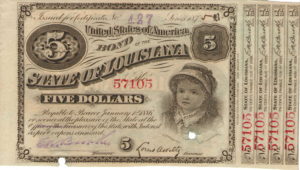
John Soon Lee, a stockbroker with Wunderlich Securities, was barred from associating with any Financial Industry Regulatory Authority (FINRA) member in any capacity per an Office of Hearing Officers Default Decision containing findings that Lee converted customer funds and failed to provide requested information and testimony to FINRA in connection with an investigation into allegations of Lee’s misconduct. Department of Enforcement v. John Soon Lee, No. 2014041372002 (Dec. 23, 2015).
According to the Default Decision, after Lee joined Wunderlich, he informed ND that he did not possess a credit card due to personal financial issues. The Decision indicated that Lee and ND agreed that Lee would use ND’s credit card for Lee’s business travel expenses; request reimbursement of these expenses from Wunderlich directly; and reimburse ND for expenses charged to ND’s credit card as Wunderlich reimbursed Lee for such expenses.
The Decision indicated that Lee was required to collect reimbursements from his firm and remit the reimbursements to ND. However, from November 8, 2013 – April 2, 2014, Lee had charged $13,310.59 in business travel expenses to ND’s credit card. The Decision indicated that Lee had submitted reimbursement requests to Wunderlich, and his firm then reimbursed Lee for at least $12,903.90 in expenses that were charged to ND’s credit card and for roughly $3,700 in other expenses. FINRA found that Lee had retained at least $10,403.89 that he received from Wunderlich as reimbursements for business expenses charged to ND’s credit card. Thus, FINRA found that Lee converted at least $10,403.89 in reimbursement funds.
Upon investigating the matter prior to the Decision, FINRA sent a letter to Lee’s address on July 18, 2014, requesting that Lee provide on-the-record testimony by August 1, 2014, regarding his responsibilities at Wunderlich and his use of ND’s credit card. After FINRA allowed several extensions for Lee to provide information, Lee ultimately failed to respond to FINRA by a November 14, 2014, due date. This led to FINRA’s finding that Lee had violated Rules 8210 and 2010.
Firms and individuals, not surprisingly, are prohibited from unauthorized use of customer funds, borrowing of a customer’s securities or funds, forgery, non-disclosures or misstatements of material facts, and various deceptions and manipulations. Such conduct can also be found to violate criminal and other civil laws, and be subject to sanction from the federal and state government bodies.
FINRA stockbrokers like Lee who do not cooperate with FINRA’s investigations often face a permanent bar from practicing in the securities industry as such lack of cooperation violates FINRA’s Rule 8210 – requiring that no member or person shall fail to provide information or testimony or permit an inspection and copying of books, records, or accounts pursuant to the rule. FINRA typically accompanies a Rule 8210 violation with a Rule 2010 violation when individuals, according to FINRA, do not appear to observe high standards for commercial honor and just and equitable principles of trade.
Guiliano Law Group
Our practice is limited to the representation of investors. We accept representation on a contingent fee basis, meaning there is no cost to unless we make a recovery for you, and there is never any charge for a consultation or an evaluation of your claim. For more information contact us at (877) SEC-ATTY
.








